Mario Kart is a series of kart racing games based on the Mario franchise developed and published by Nintendo. Players compete in go-kart races while using various power-up items. It features characters and courses mostly from the Mario series as well as other gaming franchises such as The Legend of Zelda, Animal Crossing, F-Zero, Excitebike, and Splatoon.

Shigeru Miyamoto is a Japanese video game designer, producer and game director at Nintendo, where he serves as one of its representative directors as an executive since 2002. Widely regarded as one of the most accomplished and influential designers in video games, he is the creator of some of the most acclaimed and best-selling game franchises of all time, including Mario,The Legend of Zelda, Donkey Kong, Star Fox and Pikmin. More than 1 billion copies of games featuring franchises created by Miyamoto have been sold.
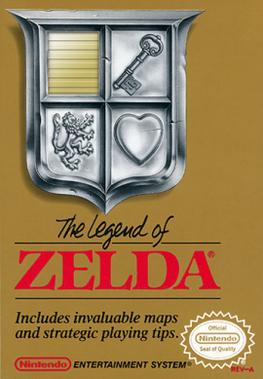
The Legend of Zelda, originally released in Japan as The Hyrule Fantasy: Zelda no Densetsu, is an action-adventure game developed and published by Nintendo. The first game of The Legend of Zelda series, it is set in the fantasy land of Hyrule and centers on an elf-like boy named Link, who aims to collect the eight fragments of the Triforce of Wisdom in order to rescue Princess Zelda from Ganon. The player controls Link from a top-down perspective and navigates throughout the overworld and dungeons, collecting weapons, defeating enemies and uncovering secrets along the way.

Koji Kondo is a Japanese composer and pianist at the video game company Nintendo. He is best known for his contributions for the Super Mario and The Legend of Zelda series, with his Super Mario Bros. theme being the first piece of music from a video game included in the American National Recording Registry. Kondo was hired by Nintendo in 1984 as their first dedicated composer and is currently a senior executive within their Entertainment Planning & Development division.
The Game Critics Awards were a set of annual awards held after the E3 video game conference since 1998. The awards were given to products displayed at E3 with the title Best of E3 of their category. The 21st Annual Game Critics Awards was showcased for the final time in 2019, four years before E3 was permanently discontinued.
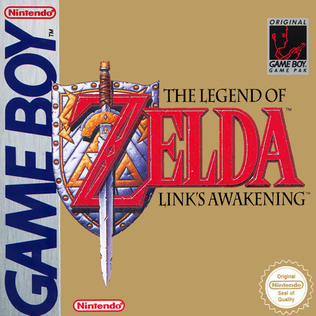
The Legend of Zelda: Link's Awakening is a 1993 action-adventure game developed and published by Nintendo for the Game Boy. It is the first installment in The Legend of Zelda series to be released on a handheld game console. Link's Awakening is one of the few Zelda games not to take place in the land of Hyrule, and it does not feature Princess Zelda, Ganon or the Triforce relic. Instead, the protagonist Link begins the game stranded on Koholint Island, a place guarded by a whale-like deity called the Wind Fish. Assuming the role of Link, the player fights monsters and solves puzzles while searching for eight musical instruments that will awaken the sleeping Wind Fish and allow him to escape from the island.

Nintendo Selects is a marketing label previously used by Nintendo to promote best-selling video games on Nintendo game consoles. Nintendo Selects titles were sold at a lower price point than new releases. The program paralleled other budget range software by Sega, Sony, and Microsoft to promote best-selling games on their consoles as well. In Japan, the discount label was introduced in 2015 for various Nintendo 3DS titles as the Happy Price Selection, although South Korea adopted the Nintendo Selects name at an earlier period. The most recent Nintendo Selects titles were released for the Wii U and 3DS and, as of January 2024, no Nintendo Switch games have been rebranded as Nintendo Selects.
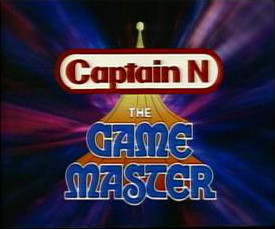
Captain N: The Game Master is an animated television series that aired on television from 1989 to 1991 as part of the Saturday morning cartoon lineup on NBC. The show was produced by DIC Animation City and incorporated elements from many of the most popular video games of the time from the Japanese company Nintendo. There was also a comic book version by Valiant Comics, despite only featuring characters from games produced by Nintendo.
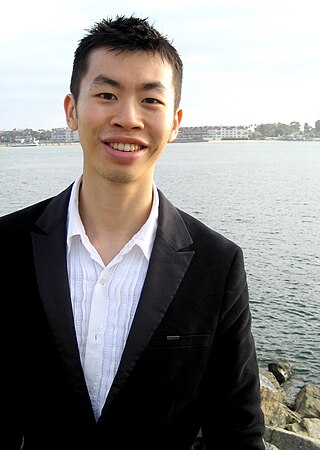
Martin Leung is an American pianist. He plays classical music and is known as Video Game Pianist. He gained recognition for playing video game music on the piano, both in concert venues and in online videos.
Nintendo Fusion Tour was a touring rock music and video game festival sponsored by Nintendo, which began in 2003.

Super Mario Adventures is an anthology of comics that ran in Nintendo Power throughout 1992, featuring the characters from Nintendo's Mario series and based loosely on Super Mario World. In 1993, the series was also serialized in CoroCoro Comic in Japanese, under the title Mario's Big Adventure. Charlie Nozawa, the artist who created the comics, is also known by the pen name Tamakichi Sakura. Kentaro Takekuma was responsible for the story, which follows Mario and Luigi as they attempt to rescue Princess Toadstool after she is kidnapped by Bowser with intent to marry her.

The Super Mario Bros. Super Show! is an American live-action/animated television series that aired from 4 September to 1 December 1989, in syndication. The series is based on the video games Super Mario Bros. and Super Mario Bros. 2 by Nintendo, and is the first of three television series to be based upon the Mario video game series. The animation was provided by South Korean company Sei Young Animation.
The Nintendo Player's Guides are a series of video game strategy guides from Nintendo based on Nintendo Power magazine.
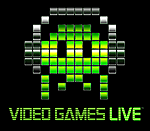
Video Games Live (VGL) is a concert series created by Tommy Tallarico and Jack Wall. The concerts consist of segments of video game music performed by a live orchestra with video footage and synchronized lighting and effects, as well as several interactive segments with the audience. Incorporated in 2002, Video Games Live has performed over 500 shows internationally.
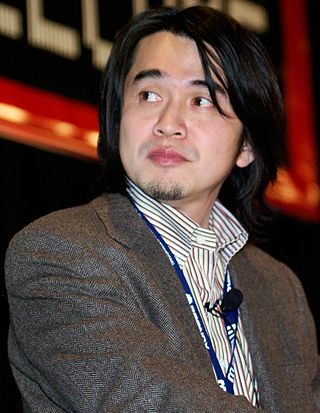
Yoshiaki Koizumi is a Japanese video game designer, director, producer, and business executive. He is a senior executive officer at Nintendo and a deputy general manager at Nintendo EPD, where he is known for his work within their Mario and The Legend of Zelda series, and as the General Producer of the Nintendo Switch. In 2009, he was chosen by IGN as one of the top 100 game creators of all time.

The 440 Alliance is an American cello rock band from Arlington, Texas consisting of five cellists and a percussionist. The group formed in 2004 and is known for their diverse approach to the cello, incorporating electric effects, turntables, piano, and mallet percussion. They received national exposure on NPR's All Songs Considered, the Drew Pearson Show on Fox Sports, and on Fox's musical reality show, The Next Great American Band. The group has performed at a number of private parties for celebrities including Troy Aikman, Jerry Jones, John Kirtland, Janine Turner, members of the Dallas Symphony Orchestra, as well as the Dallas, TX movie premiere for the film The Soloist.
The Super Mario Bros. theme, officially known as the "Ground Theme" is a musical theme originally heard in the first stage of the 1985 Nintendo Entertainment System (NES) video game Super Mario Bros. It was one of six themes composed for the game by Nintendo sound designer Koji Kondo, who found it to be the most difficult track to compose for it.
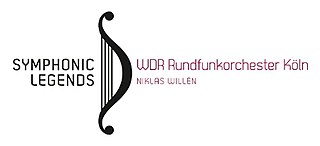
Symphonic Legends – Music from Nintendo was a symphonic tribute concert held in Cologne, Germany on 23 September 2010 by the WDR Rundfunkorchester Köln, featuring video game music from Japanese game developer Nintendo. The concert featured symphonic arrangements found in some of Nintendo's biggest game series, such as Legend of Zelda, Super Mario Bros., Pikmin, F-Zero and Donkey Kong. The concert was produced and directed by Thomas Böcker, with arrangements provided by Finnish composers and musicians Jonne Valtonen and Roger Wanamo, as well as Japanese game music composers Masashi Hamauzu, Hayato Matsuo, Shiro Hamaguchi and German film composer Torsten Rasch.

The Greatest Video Game Music, performed by the London Philharmonic Orchestra, features classical orchestrations of video game themes including those from Super Mario Bros., Call of Duty, Metal Gear Solid, Final Fantasy, Halo, World of Warcraft, Angry Birds and many more. A sequel, The Greatest Video Game Music 2, was released a year later.
The Nintendo Gateway System is a series of video game consoles specialized for airlines and hotels. As part of a partnership between Nintendo and LodgeNet from late 1993 up until the late 2000s, about 40,000 airline seats and 955,000 hotel rooms featured a modified version of the Super Nintendo Entertainment System, Game Boy, Game Boy Color, Game Boy Advance, Nintendo 64, or GameCube, installed on some Northwest, Singapore Airlines, Air China, Air Canada, Alitalia-Linee Aeree Italiane, All Nippon Airways, British Midland International, Kuwait Airways, Malaysia Airlines, Thai Airways, and Virgin Atlantic passenger aircraft, as well as certain hotels with LodgeNet, NXTV, or Quadriga entertainment systems.













